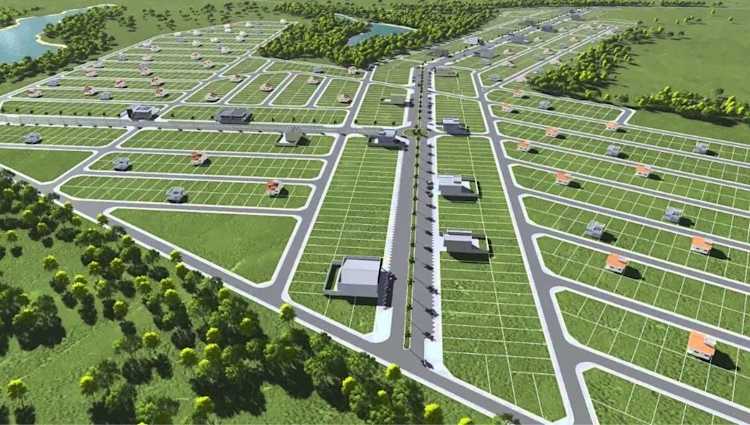10 Things to Know When Buying Land
by Becca Stewart - October 22nd, 2022

Even with increasing home inventory and slowing home sales, many military families still struggle to find homes and get offers accepted. Some give up and decide to rent. Others turn to full-time RV life. But there is another alternative. Could buying property be the answer to your current housing market woes?
Want to learn more about buying land? Connect with an experienced real estate agent today to discuss your options.
Tired of high home prices: Why land might be the solution
If you are fed up with the current housing market, tired of high home prices and rising interest rates, you are not alone.
Many military families are still finding it difficult to buy a home amid high prices, low inventory, and high interest rates. If you're tired of searching for the perfect pre-built home, consider buying your own plot of land. Purchasing property can be a great option, allowing military families to build the home they want without going through the home buying hoops.
"Many of the military families I work with are having a tough time finding homes. There are more on the market than there were a year ago, but interest rates are higher, and that's pricing out a lot of homebuyers. Buying land is one way to take control of the entire process, from start to finish, and ensure you end up with a home you love."
- Military-Friendly Agent
Buying land is a popular option with military retirees, too. Living in home after home throughout our career gives us a clear idea of what we want (and absolutely do not want) in a forever home. Plus, retirees have more time to sit back and enjoy the design and build process without the stress of a PCS timeline.
Can you buy land with a VA loan?
First things first: how will you pay for that plot of land? If you plan to use your VA benefits to fund that purchase, you may need to come up with another option.
While securing a VA loan for a land purchase is possible, there are some strict stipulations. You cannot purchase vacant land using a VA loan with the intention of building on it "someday." However, you can use your VA loan for the land and home construction loan in some cases.
Your other option is to secure a short-term loan from another lender, like a bank or credit union, to cover the cost of the land and the home construction. You can then refinance to a VA mortgage when the project is complete.
Contact a trusted VA loan expert to learn more.
10 Tips for buying land
Before you buy land, there are several factors to consider. If you intend to build a home – and want to do so quickly – you will have to pay careful attention to the property's location and available amenities.
There are three main categories of land: raw, unimproved, and improved. If you want to build a house quickly, improved land is your best bet. Usually, these lots are ready to build, with utilities and roads already in place. Read more about the different types of land purchases here.
1. Location
You can upgrade or change just about everything when building a home…except the location. Choosing the right site is perhaps the most crucial consideration when buying land. Think about what is important to you and your family: schools, medical facilities, the commute to work, and shopping and entertainment options. Then, work with an experienced real estate agent to find available land that meets your needs.
Read more here about factors to consider when choosing a location for your "forever home."
2. Water
Improved land (and even unimproved land, in many cases) usually has a ready water source. Large lots typically require well water, especially in rural areas. However, lots in developing neighborhoods might have access to city water.
Check with the landowner and ask about the current water source. If there is no water source, hooking into the city water or drilling a well will be costly. Factor that expense into your overall building budget.
3. Sewer
Sewer is another factor to consider. Does the property hook into the city sewer lines, or will you have a septic tank? If there is a septic tank, you can expect additional annual expenses to maintain and pump your tank.
4. Electric
Most "ready-to-build" home sites have access to city electricity. But that's not always the case. If you purchase land in a rural area, you may need to pay to hook into the local electric grid. You might also consider alternative energy sources, like solar or wind power.
"I've had clients who fell in love with a piece of land they found online, only to learn that there wasn't any water, sewer, or electric on the property. Those utilities can usually be run to the property, sure, but it's often cost-prohibitive. If you want to buy land, start by searching for property that's ready to build. That's usually the easiest way to start construction quickly."
- Military Real Estate Expert
5. Roads
How easy is it to access the property? Does the property already have a paved or grated road? Or will you need to pay someone to clear land and pave a route for you? Who is responsible for paying to maintain the road on your property?
6. Building codes
Before you look at available properties, know how they are zoned. You can only build a home on land zoned for residential use. Even then, you will have to abide by the city or county's building requirements. Working with a licensed contractor can help ensure your home is built within those specifications. Failing to follow the building codes can lead to costly fines or fixes.
7. Neighborhood requirements
If you're building on a lot within a developing neighborhood, check the building requirements before purchasing. Some build-to-suit communities require a minimum square footage for homes or have other strict rules. If you can't afford to build a house that meets these square footage requirements, don't buy the land.
8. Internet and cellular service
Internet and cellular phone service are a must in today's connected society. Before you purchase a plot of land, check with your local internet and cellular providers to check the connection in that area.
9. Soil composition and depth
Get a soil test on the land before buying. Paying for a professional soil test can help you determine the composition and depth of your soil. If the bedrock is close to the surface, you won't be able to build a basement. Ground with a lot of clay increases your risk for foundation problems. And expansive soil – material that swells and shrinks in varying conditions – can wreak havoc on your home over the years. Understanding what's going on below the surface is a crucial part of the land-buying process.
10. Lot size
Before buying that gorgeous ten-acre lot in the woods, consider the logistics of owning that much land. How will you maintain the lot? Will you need to clear trees and other foliage before you can build? Do you need to be concerned about defensible space in case of wildfires? And who will mow all that grass?
A large lot can be a wonderful place for military families, but owning land is also a lot of work. Before you buy land, carefully consider what you're getting yourself into.
Want to buy land? Get rewards when you work with an experienced real estate agent!
Do you need a real estate agent to buy land? Legally, no. But working with an agent, especially one who is experienced in land purchases, can be extremely beneficial. As with a traditional home purchase, buying land comes with tons of legal paperwork. The process can be time-consuming and frustrating to navigate on your own. A licensed real estate agent can help guide you through the process, saving you headaches and heartaches down the road.
Work with a PCSgrades-affiliated agent and get cash back at closing! Learn how much money you could earn by working with a military-friendly real estate agent: click here!









